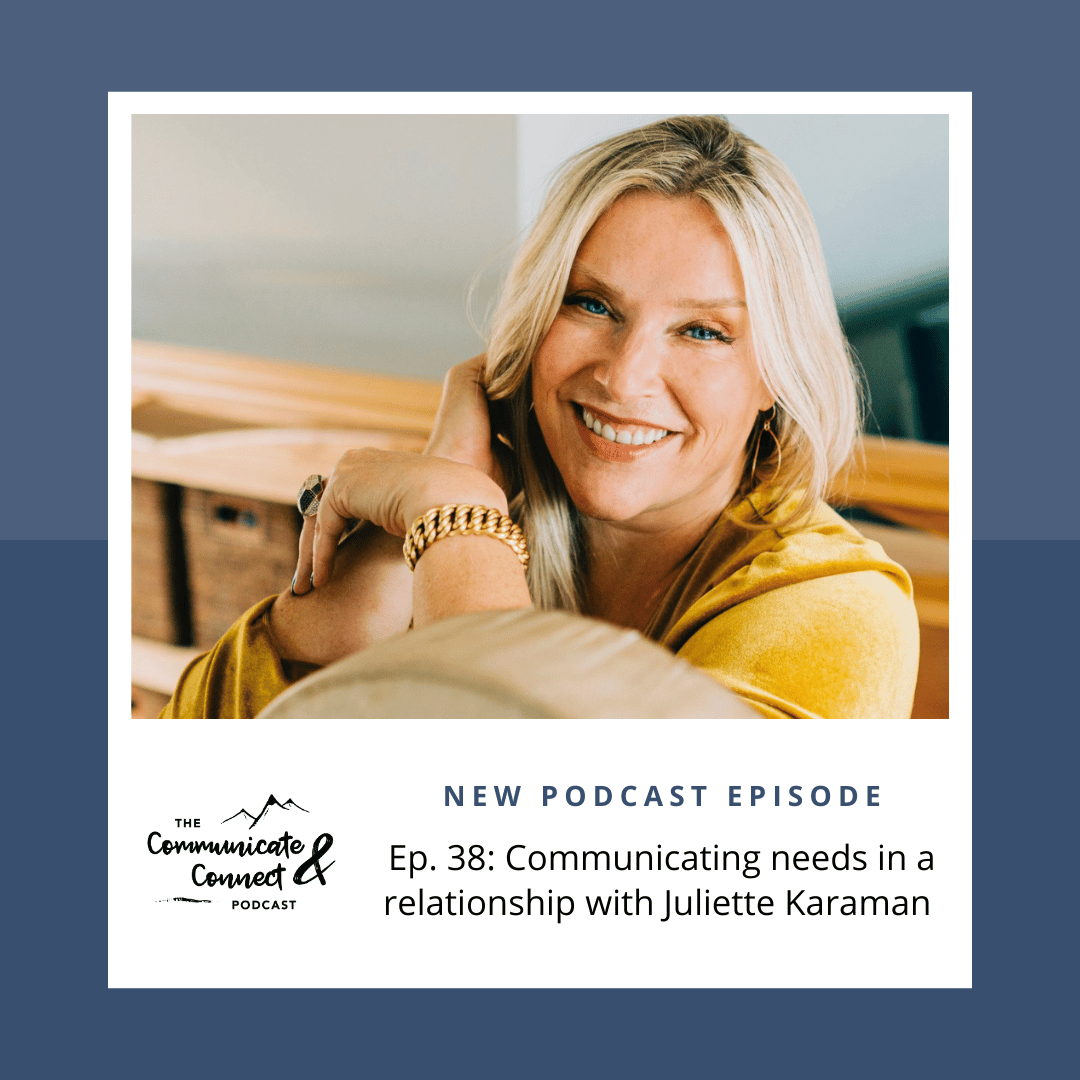|
How do you communicate needs in a relationship? In this podcast episode, Elizabeth Polinsky interviews mind-body coach Juliette Karaman on she teaches her coaching clients to communicate their needs in relationships.
IN THIS PODCAST
Introduction to Juliette Karaman
Juliette Karaman, a mother of four kids, is a mind body coach and hypnotherapist who lives in the UK. She works with individuals and couples to help build up more emotional intelligence. In couples she helps build this emotional intelligence to help couples respond to each other versus reacting to each other.
The difference between counseling and coaching
In Juliette's understanding of the difference between therapists and coaches, she views therapists as holding space and helping you talk through what happens but not sharing about their own story as much.
In contrast, she views coaches as using a lot of story telling and shareing a lot of personal stories to help clients. Juliette identifies as a trauma informed coach, and views coaching as similar to mentoring. Coaches have typically gone through a similar experience and they share about their own experience to help someone else going through a that experience. They teach the tools that they found helpful when they went through something similar. A thing to keep in mind is that coaching is not a regulated industry and so you may not end up working with a qualified person. Make sure to do your research so you can get a feel for them, their experience and qualifications, to make sure they can be helpful. It can be helpful to try to trust your gut and intuition when working with someone. The importance off communicating needs in a relationships
So often couples are reacting to each other instead of responding to each other. This has to do with emotional intelligence and being aware of what is happening for your emotionally. Each individual has to work on this themselves to start identifying their thoughts, emotions, and body sensation. When you don't have an emotional intelligence skillset built up, your emotions feel chaotic on the inside and then reactiveness comes out in your verbal and nonverbal communication. The message about what you need is not very clear. However, when you can increase your emotional intelligence, you can increase your ability to respond versus react, and to communicate in a clearer and more effective way.
How to communicate needs in a relationship
When people are reacting in the moment it is usually from a place of lack where something is missing. This might sound like, "you never do the dishes" versus "I would love it if you would help me with the dishes when you are home because it helps me feel really included and know that we are both taking care of the house". These two statements sound really different to the person hearing it. Often times our partners want to please us, but it's very hard for them when you are throwing accusations.
Things you can do to communicate your needs:
Our brains are primed to look for the negative and we have to put in extra work to look for the positive." -- Elizabeth Polinsky Tips for military couples
There are a lot of moving parts for military couples, but here are some tips:
Sign up for Liz's FREE Relationship Email Course!
Podcast Sponsor: This podcast is sponsored by Elizabeth Polinsky Counseling, where marriage counselor Elizabeth "Liz" Polinsky provides online marriage counseling, weekend long marriage intensives, and therapist training in Emotionally Focused Couples Therapy.
Thanks for listening! About the Podcast Host
DISCLAIMER:
My podcast, blogs, videos, newsletters, and products are general information for educational purposes only; they are not psychotherapy and not a replacement for therapy. The information provided does not constitute the formation of a therapist-patient relationship. You should consult your doctor or mental health provider regarding advice and support for your health and well being. I cannot answer questions regarding your specific situation. If you are experiencing a medical or mental health emergency, you should call 911, report to your local ER, or call the National Crisis Hotline at 1-800-273-8255. Nothing I post should be considered professional advice. The information in my podcast, blogs, videos, newsletters, and products are not intended to be therapy or psychological advice. The podcast, blogs, videos, newsletters, and products are not a request for a testimonial, rating, or endorsement from clients regarding counseling. If you are a current or former client/ patient, please remember that your comments may jeopardize your confidentiality. I will not “friend” or “follow” current or past clients to honor ethical boundaries and privacy; nor will I respond to comments or messages through social media or other platforms from current or past clients. Current and past client’s should only contact me through the professional contact information provided on the website. Lastly, accounts may be managed by multiple people. Therefore, comments and messages are monitored by staff and are not confidential.
0 Comments
Your comment will be posted after it is approved.
Leave a Reply. |
The Communicate & Connect Podcast
In Communicate & Connect For Military Relationships, I provide educational tips for relationships, communication, and navigating military family life. AuthorHey, I'm Dr. Elizabeth "Liz" Polinsky and I am a marriage counselor in Virginia Beach. I provide online counseling across the states of VA, MD, NC, SC, AR, and NV. Categories
All
|
Telephone(757) 354-1157
|
liz@communicateandconnectpodcast.com
|




 RSS Feed
RSS Feed
